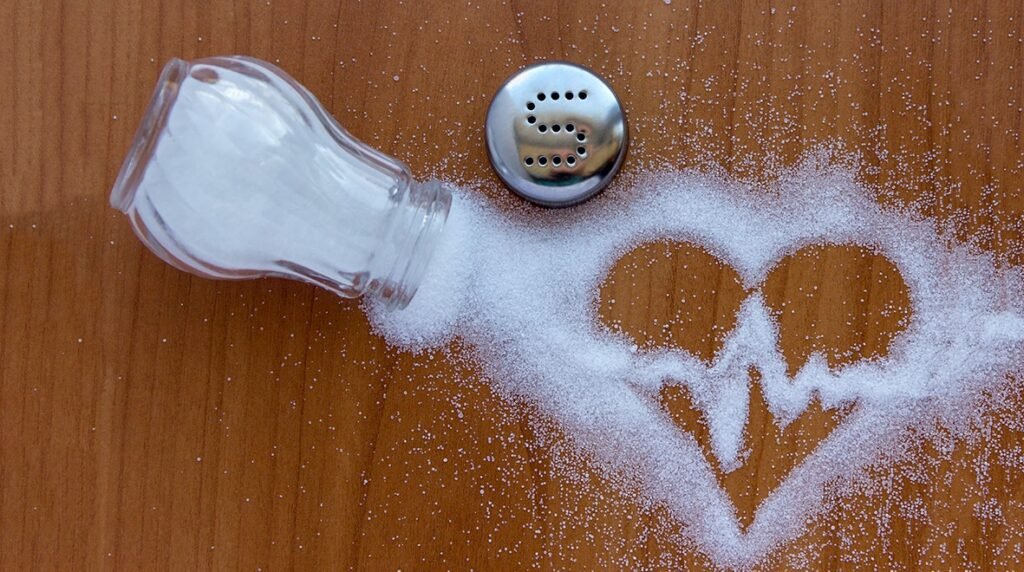High Blood Pressure Sodium Intake: High blood pressure is becoming more common due to modern lifestyles. The World Health Organization says heart-related diseases are a top cause of death worldwide. In recent years, more young people and adults have developed heart disease. Reasons include not being active, eating too much processed food, smoking, being overweight, diabetes, and high blood pressure. What you eat affects your heart in many ways.
Many people don’t know that eating too much salt can harm your heart and overall health. Sodium, a mineral in salt, helps keep the right amount of liquid in your blood. Too much sodium causes the body to hold onto extra water. Here’s how much salt you should eat each day and tips to reduce your sodium intake.
How Much Salt Should You Eat?
The American Heart Association suggests not eating more than 2,300 milligrams of sodium (5 grams of salt) per day. For people with high blood pressure, the ideal amount is 1,500 milligrams per day.
Ways to Reduce Sodium Intake:
1. Choose Low-Sodium Foods: Fresh foods like fruits, vegetables, dairy products, eggs, nuts, seeds, and whole grains are usually low in sodium. Avoid heavily processed and packaged foods.
2. Use Herbs: When cooking at home, use less salt and try herbs and spices instead. They can add flavor to your food without increasing sodium.
3. Eat Homemade Meals: Packaged and fast foods often contain a lot of salt. They also have unhealthy fats that aren’t good for you. Eating too much of these can be bad for your health.
4. Eat Potassium-Rich Foods: Potassium can help balance out the effects of sodium and may lower blood pressure. Include foods like bananas, potatoes, spinach, watermelon, and beets in your diet.
Studies show that high sodium intake is linked to higher risks of high blood pressure, heart attacks, strokes, and heart failure. Reducing your salt intake can help lower these risks.

